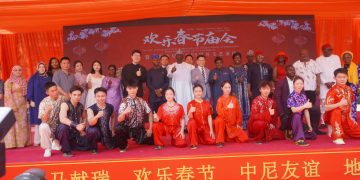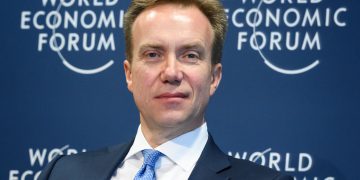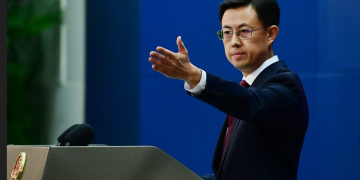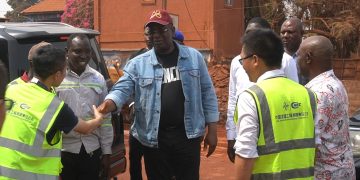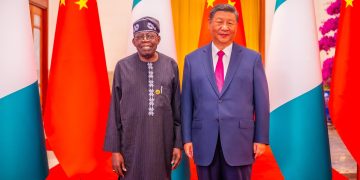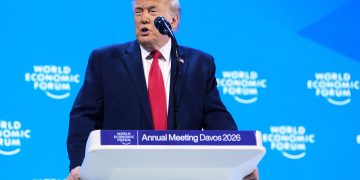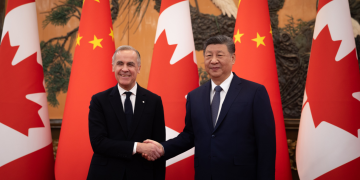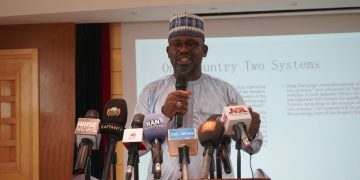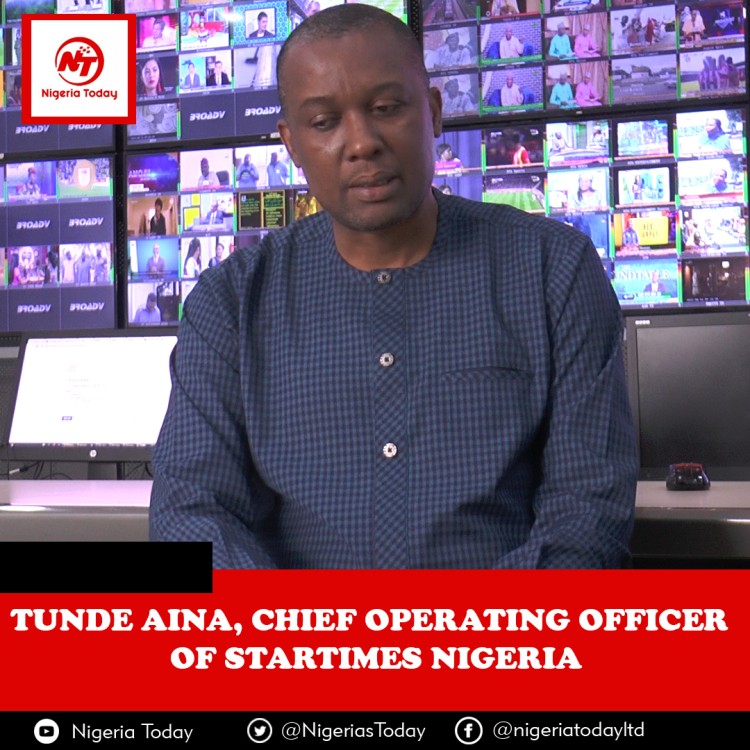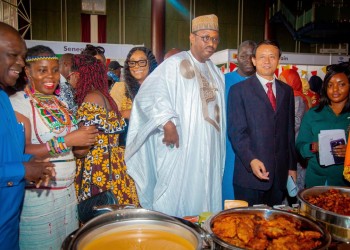Tunde Aina, Chief Operating Officer of StarTimes Nigeria, a leading Chinese electronics and media company spoke exclusively to our correspondents on the activities and operations of the Digital Terrestrial/Satellite Television provider and other sundry issues.
Q: Can we meet you?
Tunde Aina: My name is Tunde Aina, the Chief Operating Officer of NTA-Star TV Network. NTA Star-TV Network is StarTimes in Nigeria. It is a joint venture between the Nigerian Television Authority (NTA) and the Star of China. The joint venture was formed in 2009 and we started business in 2010.
Q: So what is the Joint Venture all about?
Tunde Aina: The joint venture is a paid TV company. So, the Star of China is a paid TV company. NTA is the national broadcaster of Nigeria which has extensive infrastructure across the country. So NTA and StarTimes came together to set up a network to provide paid TV services at an affordable cost on both the terrestrial and satellite networks.
Q: So how has it been since you set up shop in Nigeria?
Tunde Aina: It’s been very challenging. StarTimes came in as a game changer. Because paid TV before now was an elitist thing. It was reasonably expensive, not everybody could afford it. So we came in with that slogan, affordability. This is digital TV, with better pictures, and better sound at an affordable cost. But it’s been getting more and more difficult over the years because businesses like this depend a lot on foreign inputs. That is you earn money in naira but get your inputs in dollars. Once there is any fluctuation in the exchange rate, it affects your bottom line and its been getting worse over the years. That’s the main challenge. Another challenge is that when things get harder for people, the first thing they think about is food to eat, maybe clothes to wear and paying their children’s school fees. So other things are considered a luxury. Because our services are relatively cheaper, most of our customers are those who are middle class and below middle class. And so when things become tougher, they are the first people that are hit. These are the main challenges we face and things are getting worse.
Q: You are painting a very gloomy picture of the operation of StarTimes in Nigeria. Are you painting the picture of we may close up shop in Nigeria or we will do our best to surmount the challenges we are facing? You don’t sound optimistic.
Tunde Aina: Well we are optimistic but we just have to be realistic as well. Things are difficult doesn’t mean we are closing shop. We are meeting the challenges, we are trying to reduce costs as much as possible and reduce waste as well. But of course, in some instances, we have to take some difficult decisions because, for example, we have more than Tunde Aina, Chief Operating Officer of StarTimes Nigeria, a leading Chinese electronics and media company spoke exclusively to our correspondents on the activities and operations of the Digital Terrestrial/Satellite Television provider and other sundry issues. Recently we had to take some difficult decisions. There are some cities where power supply deteriorated in the last six months. So it means you have to run on an alternative power supply. You know what happened to the price of diesel, it went up like three times. So we now had to start migrating customers from the DTT to the DTH platform. The DTH is cheaper to run. You stay in one place and transmit to the whole of Africa. But with the DTT, you have to set up a transmitter wherever you want to broadcast. You must have engineers, a generator and so on. So we have tried to make all these adjustments to keep doing business by cutting costs as much as possible.
Q: Can you quickly run us through your packages and why consumers should go for StarTimes?
Tunde Aina: We have different kinds of consumers and they have different needs. The men, like to enjoy their football weekends. We have about five sports channels. We have Bundesliga, and one EPL match per week on either NTA or Sporty TV. Then we have another sports channel dedicated to combat sports like mixed martial art and boxing. Women like Novelas. We have lots of Novela channels. We have the Indian Novela Channels and the Nigerian Nollywood channels. We have lots of kids’ channels probably up to seven like Toonami, CBeebies, Jimjam Baby TV and so on. We try to satisfy the different types of customers that we have. The men, the women, the children and then the youths. Secondly, we also try to launch lots of channels in local languages because we find out that its easier to communicate with somebody in his mother tongue. Most people understand their mother tongue more than they understand English. So when you communicate in their local languages, you can reach them better. Apart from that, most of us parents don’t have the opportunity to teach our children in our local languages. So we can encourage them to watch content in the local language which helps in developing the language skills and also perpetuating the culture.
Q: Can you tell us about your subscriber base?
Tunde Aina: Our subscriber base is always increasing. Right now, we have over four million subscribers and we expect an exponential increase very soon because yesterday, a very important agreement was signed between StarTimes and ITS. ITS is the licenced signal distributor responsible for distributing free channels. They are now partnering with StarTimes which will bring about the actual switch-off of analogue TV in Nigeria. The government has promised that within the next two months, they will start switching off analogue and once this is done, the demand for digital TV will go up implying that everyone must have one Digital TV or the other to watch television at home.
Q: Will you like to shed more light on the ITS-StarTimes partnership?
Tunde Aina: ITS is one of the licenced signal distributors by the National Broadcasting Commission (NBC). ITS has a licence but they are a relatively young company compared to StarTimes. So instead of spending money on a new rollout, the government felt that it makes sense for ITS and StarTimes to come together and roll out free digital TV services all over the country so that they can switch off analogue.
Q: How soon is the take-off?
Tunde Aina: The government will start switching off analogue in the next three months. The switch-off will be done in phases until analogue TV is phased out from Nigeria.
Q: So StarTimes will become a major player when it comes to Digital TV in Nigeria?
Tunde Aina: StarTimes has become a much more important player in the digital ecosystem of Nigeria.
Q: So StarTimes should be optimistic?
Tunde Aina: Yes we are optimistic, but having a subscriber base of four million doesn’t mean the four million are paying your subscription monthly. The actual number fluctuates depending on certain situations. Like I was trying to explain, if things are hard for people, one of the first things they cut off is entertainment. Because of decisions like this, you find out that the active subscribers fluctuate from time to time.
Q. Talking about subscriptions, how affordable are your rates?
Tunde Aina: Our subscription rate is the most affordable in the industry. On the terrestrial and Satellite platforms, we have a subscription of N900 per month. And with that, you can watch more than 30 channels. That is the cheapest you can get anywhere. Our most expensive subscription is about N4900. And of course, if you are a Nigerian, you will know that that is probably less than a quarter you can get elsewhere. Relatively we are affordable. Affordability and accessibility have been our selling points from day one.
Q: As a joint venture, have the Chinese partners intervened in providing the funding needed for the business?
Tunde Aina: The Chinese side brought in all the funds used in setting up this business. The Nigerian side contributed infrastructure. Look at this compound, this land, this mast, they belong to NTA. But all the cash and equipment were provided by the Chinese side and they have been supporting the business. Because a big business like this takes time to be profitable so the investors keep investing until you become profitable. So the Chinese side has been doing all that, 100%.
Q: What is the ownership structure of StarTimes?
Tunde Aina: The Chinese side has 70%, while NTA has 30%. As stated earlier, the Chinese side brought in all the equipment and cash to run the business. NTA owns the mast and the land which they made available for the business. What the joint venture is using from NTA is the lease value of their landed infrastructure and the mast. It is their equity in the business. Because they own 30%.
Q: What do you think the future holds for this kind of agreement?
This kind of agreement has a lot of risks. One of the risks is lack of continuity or the fact that government is transient. It depends on who is there. You come in as a businessman, you sit down with government officials, and you sign an agreement to do business. In the next two years, that government has moved on, a new government comes in and he is not convinced and you start all over and all over again. So, once any new person comes you have to start explaining to get their buy-in.
Q: What is your advice to the government to sustain this partnership?
Tunde Aina: The way it was structured from the beginning. Most of those issues were taken care of in the joint venture agreement. Because in the agreement, the Chinese side is the operator of the business so NTA does not interfere in the day-to-day running of the business. And everything has been smooth so far. I am a staff of NTA. I was part of this joint venture from the beginning, I went to China, spent four years, came back and then I resumed this position in the joint venture. So, although I am an NTA person, I am working with Chinese colleagues to run the business and also serve as a bridge between the Chinese side and the Nigerian side.
Q: What are the plans to become the leading satellite provider in Nigeria?
Tunde Aina: Affordability and accessibility. Then the content itself. We try to improve our content to try to make it what people like. For example, we are the leading platform in the North. You can ask anybody on the street. We are very strong in Hausa channels. We have Dadin Kowa and Arewa 24 and some other ones. We have lots of Chinese content that are dubbed into local languages, especially Hausa. The Hausa people like these contents because the Hausa culture is conservative and the Chinese culture is also conservative. So they probably feel some affinity. We are doing very well and hope that with the recent developments, things are going to be much much better before the end of the year.
Q: Has there been any Corporate Social Responsibility (CSR) from StarTimes?
Tunde Aina: We have a lot of CSR initiatives. There is something we are doing with SOS village. We have some partnerships with them. We donated money and funded some of their activities. There was this 1000 villages project. The Chinese government and African governments met in FOCA 2015 and the Chinese government pledged to provide 10,000 villages in Africa with TV facilities and StarTimes was the contractor to implement that project. 1000 villages in Nigeria were selected and every local government got one village. We can tell you that one village in every local government benefitted except 3 to 5 in Zamfara state. So each village got two solar-powered projector TV and 20 decoders distributed to different families. These are shared by the heads of the communities.
Q: What is the volume of investment StarTimes has made in the last couple of years and how has this impacted the Nigerian economy?
Tunde Aina: StarTimes has invested over 200 million dollars in investment in Nigeria in the last couple of years. The very fact that you have a running business in Nigeria, you are contributing to the economy.
First of all, you need staff, so you employ people. We have over 1000 direct staff in our employment. Then we have several thousands of dealers. We have super dealers and other smaller dealers. All these people are earning their livelihood courtesy of this business. Secondly, the content itself. We are broadcasting content. We have several Nollywood channels. So that means that the more channels you
have, the higher the demand for content and that is more jobs for producers. These are the areas where the business has affected the economy positively. One other area is the issue of dubbing. I mentioned
earlier that we have a lot of local language channels and some of these contents are foreign content. So you have foreign content and you want people to enjoy it in their local languages. This means you have to add value to that content by translating and dubbing it. So we have thousands and thousands of hours of content in Chinese and India. So that is an extra job created. That industry did not exist until StarTimes came. All we know is we produce our movies and we sell them. But dubbing content into local languages is a new industry that was created by our policy of broadcasting Chinese content in local languages. So somebody has to translate, dub and put everything together.
Q: How has StarTimes helped in strengthening cultural relations between Nigeria and China?
Tunde Aina: This joint venture is one of the strongest tools for creating harmony between Nigeria and China. Harmony is about culture. You need to understand me and I understand you, then we can live together happily, isn’t it? Previously, people didn’t have a lot of access to Chinese content and drama. Courtesy of StarTimes, people now have more access to Chinese content and drama. In the last ten years, many Nigerians have had more opportunities to understand the Chinese people better through our Chinese programs. Once you understand people better, you can live with them harmoniously.
Q: How do we leverage Chinese technology to advance our Digital Technology in Nigeria?
Tunde Aina: When I was in China, one of the things that struck me is agriculture. The Chinese have developed a lot of simple technology that improves the efficiency of farming. This is one area I think we can benefit
from China. Remember China too, although ahead of us is still developing and have similar problems as Nigeria and they have been able to find solutions to some of their problems. So we can borrow a lot from them, especially in terms of this simple technology that makes production
processes, especially in agriculture more productive. Now coming to digital, China has provided the technical know-how, equipment
and funding we can also leverage on. This joint venture is a good example of that. They came in with the money, the technology, the equipment. We have our content, and our creativity, we come together to set up a business to improve the economy of the country.

